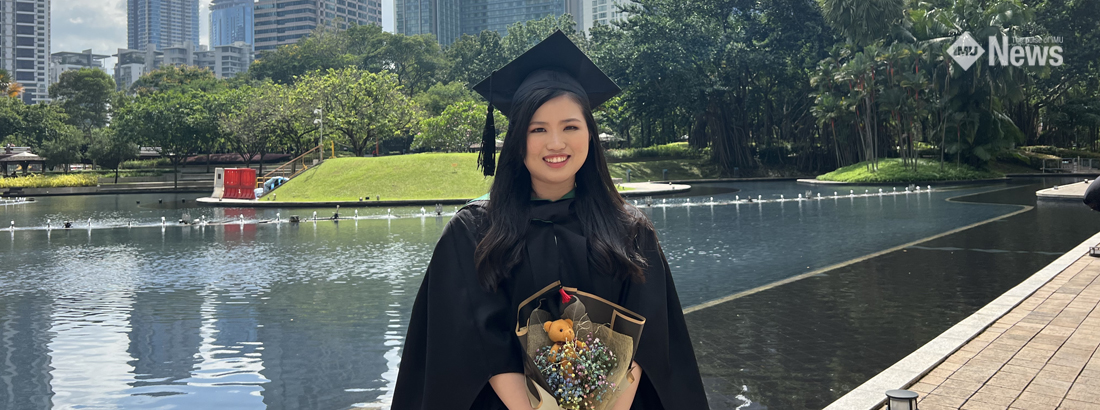Author of this article, Teng Carine graduated with a Bachelor of Pharmacy (Hons) from the International Medical University
In Malaysia, under the Registration of Pharmacists Act 1951, pharmacy graduates need to complete a provisional registration training to the satisfaction of the Pharmacy Board for not less than one year to obtain the Fully Registered Pharmacist (FRP) licence. The training can be carried out at government hospitals/clinics/institutions and private facilities such as community pharmacies, private hospitals, the pharmaceutical industry and research and development centres recognised by the Pharmacy Board. Upon graduating in 2021 with a Bachelor of Pharmacy (Hons) [BPharm (Hons)] from the International Medical University (IMU), I decided to embark on the journey as a Provisionally Registered Pharmacist (PRP) at a government hospital, Hospital Kuala Lumpur (HKL).
I started my PRP training at the outpatient pharmacy department for the first month. At the outpatient pharmacy, pharmacists receive prescriptions from clinics of different discipline such as medical, nephrology, urology, gastroenterology, endocrinology, geriatric and general surgery. At this department, there are several processes happening behind the scenes after receiving a prescription including screening, transcribing, filling and dispensing, all of which should be ideally completed within 30 minutes. Thus, to be able to screen a prescription properly within the shortest time, one must be familiar with the indications, common dosing, maximum dose, and contraindications of all medications. During medication counselling, it is essential to convey the information in layman’s language, that can be easily understood by patients.
In retrospect, I believe that the IMU BPharm (Hons) programme has equipped me with the essential knowledge and soft skills in becoming a competent, caring, and ethical pharmacist. For instance, the modules that are presented in a body system-based format encompassing anatomy, physiology, biochemistry, and pharmacology, gave me a better understanding of why a drug is given for a certain condition. The Objective Structured Clinical Examination (OSCE) sessions in Semesters 4 and 8 not only prepared me academically but also helped me brush up my communication skills. I can recall that in one of the OSCE sessions we were required to identify the potential barriers to effective medication counselling such as angry, impatient, or even depressed patients and were being taught the strategies to communicate with such patients.
Not to mention, the IMU BPharm (Hons) programme has instilled in me the importance of evidence-based practice, life-long learning and continuing professional development. These skills are crucial in my career as it allows me to become a self-directed learner with critical thinking abilities and a problem-solving mindset. My journey as a PRP in a government hospital has just begun and I am excited for what the future holds. Nonetheless, I believe that the IMU BPharm (Hons) programme has indeed provided a good foundation that gives me a head start in the journey.











